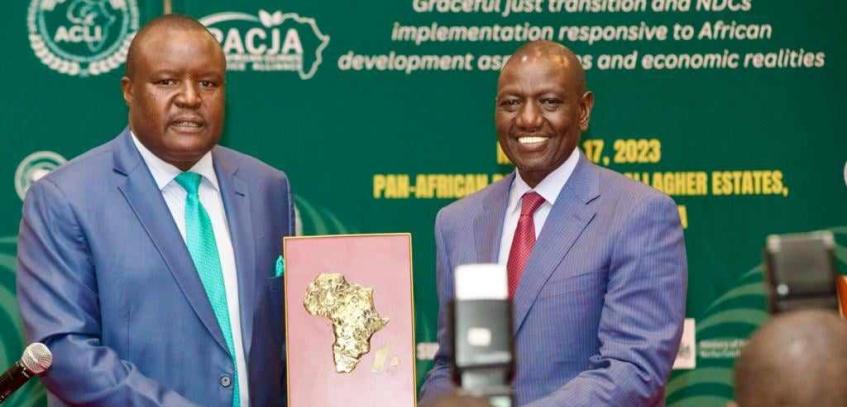The Republic of Kenya has signed the Protocol to the constitutive act of the African Union relating to the Pan-African Parliament (PAP), clearing the way for the ratification of what is also known as the Malabo Protocol.
The signing of the Malabo Protocol fulfils a commitment made by H.E Dr William Samoei Ruto to members of the Pan-African Parliament during his keynote address at the 3rd Pan-African Parliament’s Summit on Climate Policy and Equity, held in May this year at the Parliament’s Headquarters in Midrand, South Africa.
Describing a stronger Pan-African Parliament as a critical element in the process of finding African solutions to African problems, President Ruto pledged to take concrete action on the ratification of the Malabo Protocol by September 2023. He said: “PAP provides a fundamental deliberative forum where the peoples of Africa gather to reason exhaustively together and develop African Solutions to Africa’s Problems.”
H.E. Ruto also highlighted that the Pan-African Parliament (PAP) is a critical organ of the African Union, whose full institutional potential is going to become manifest as the continent rallies to formulate effective and sustainable solutions to the tremendous crisis confronting people and humanity in general.
The signing ceremony of the Malabo Protocol was officiated on the sidelines of the recently concluded Fifth Mid-Year Coordination Meeting (5th MYCM) of the African Union, the Regional Economic Communities, the Regional Mechanisms, and the African Union Member States, in Nairobi by Dr. Alfred N. Mutua, Cabinet Secretary for Foreign & Diaspora Affairs of the Republic of Kenya. Dr Mutua reiterated President Ruto’s commitment to finalising the ratification process this year.
The ratification journey has three stops; the signing, ratifying and depositing of instruments at the African Union Commission for the protocols to enter into force. So far, fifteen (15) African Union Member States have completed this process.
The Malabo Protocol was adopted at the African Union Assembly of Heads of State and Government Summit in June 2014 in Equatorial Guinea. The Protocol is intended to extend the powers of the Pan-African Parliament into a fully-fledged legislative organ of the Union. As it stands, its mandate extends to recommendations, consultation, and playing an advisory and oversight role for all AU organs pending the ratification of its protocol. It requires a minimum of 28 countries to ratify it before it comes into force.
-Ends-








